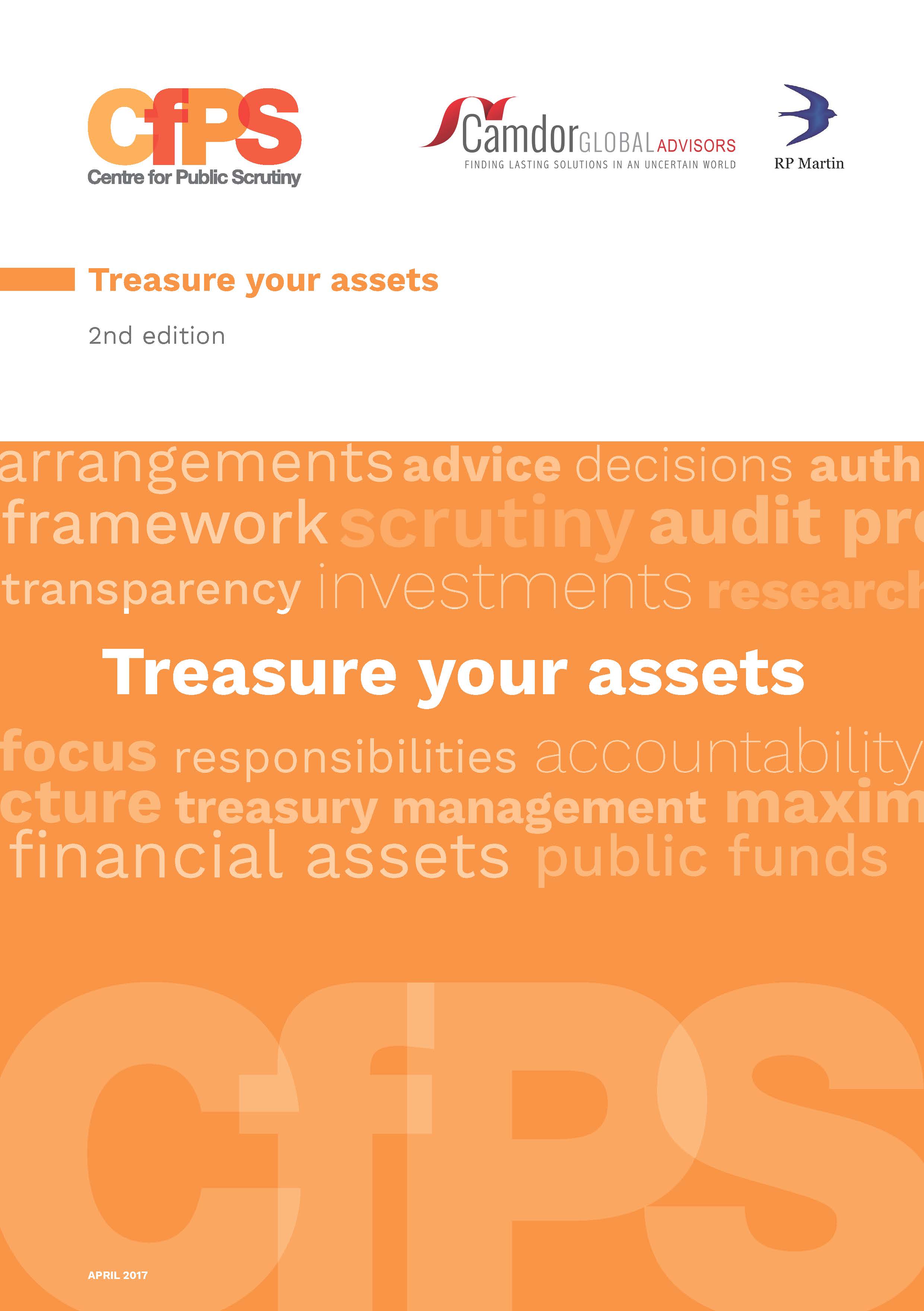
Councillors should meet with section 151 officers every quarter to informally discuss treasury management issues, according to an updated guide from the Centre for Public Scrutiny (CfPS).
The national body for promoting and supporting excellence in governance and scrutiny has refreshed its Treasure Your Assets document, first produced in 2008, on how members should ensure public money is being spent wisely.
The new version has been revised to take account of changes in the regulatory and fiscal environment following the financial crisis.
CfPS chairman, Sir Bob Kerslake, said: “Treasury management is often seen as a part of councils’ financial responsibilities that is dry and arcane, but in a world of limited resources it is vitally important.
“Treasury management is a growing challenge for the sector. The time is right for the political skills of councillors to consider, challenge and refine councils’ policies and priorities for investment to be recognised by professionals, and capitalised upon.”
Kerslake said that low interest rates, combined with creeping inflation, posed new questions on how much risk councillors should allow treasury managers to take.
He continued: “Adding further layers of uncertainty is the coming into force of the MIFID II legislation, which will mean significant additional restrictions to the ability of local authorities to invest their assets freely.”

The document said that scrutiny could focus on specific areas of treasury management.
“In treasury management, such narrowing of focus is likely to be of particular importance.
“This is because there will be a range of individuals and sets of people tasked with researching and advising on the council’s assets— scrutiny will need to understand how it complements that process, and not interfere with the exercise by managers and advisers of the formal legal duties in this area.”
However, it said that the topic of “treasury management” as a whole was too broad for a specific investigation.
Instead, the document recommends a process of “ongoing oversight”, where councillors consistently review information about the council’s business, before escalating some serious matters for more detailed attention.
Councillors could use audit reports, reports by officers, corporate risk registers plus guidance from advisers to assist them in ongoing oversight.
This ongoing oversight and access to this information should happen between meetings, rather than detailed documents being submitted regularly to the committee, the document recommends.
“This could be augmented by regular (perhaps quarterly) informal meetings between a relevant scrutiny chair and the section 151 officer, at which treasury management might be discussed alongside other financial issues,” it said.
Roy Nolan, head of public sector liaison at broking firm RP Martin, helped to prepare the new guide. He told Room151: “I think as a resource for elected members it is useful and is well overdue.
“The original version was published many years ago, just after the Iceland crisis, since when we have had numerous regulatory updates and a dramatic change in the macro environment, economic and political volatility, banking reform, capital adequacy requirements, a push to commercialism and change on LA finances.
“Anything to support elected members discharge their responsibilities to best of the their abilities should be embraced.”
Separately, an inquiry into whether council scrutiny arrangements are working properly by MPs has been cancelled due to the forthcoming general election.
The communities and local government committee was set to consider whether scrutiny committees are effective in holding decision makers to account.
Committee chairman, Clive Betts MP, said: “Local authority executives have more powers than ever before but there has not been any review about how effectively the current overview and scrutiny arrangements are working since they were introduced in 2000.”












